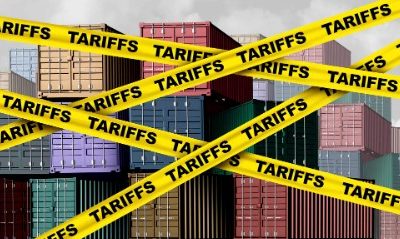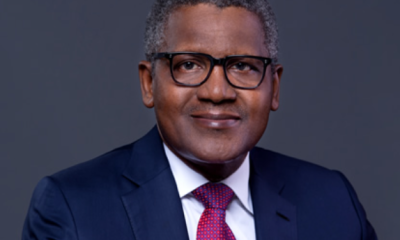Nigeria’s business environment has seen a troubling rise in company closures and relocations, as both multinational and local enterprises are forced to exit or scale back operations. This trend is largely driven by the country’s economic difficulties, currency volatility, and escalating operational costs, according to experts and business leaders.
A report by the Nigerian Investment Promotion Commission revealed that between 2015 and 2022, over 50 companies, both local and international, shut down or relocated their operations from Nigeria due to these challenging conditions.
The most recent departure came from South African grocery company retailer Pick n Pay, which announced it would exit the Nigerian market by selling its 51% stake in a joint venture.
CEO Sean Summers confirmed that the decision aligns with the company’s broader restructuring plans outside its home market.
Pick n Pay comapanies had initially entered Nigeria in 2016 through a partnership with A.G. Leventis (Nigeria) and opened its first store in 2021, operating two locations before its exit.
The exodus of companies has been a consistent pattern in recent years. In 2020, over 10 companies, including Standard Biscuits Nigeria Ltd, NASCO Fiber Product Ltd, and Union Trading Company Nigeria PLC, ceased operations, signaling the beginning of a larger trend.
By 2021, this number escalated to more than 20, with companies like Tower Aluminium Nigeria PLC, Framan Industries Ltd, and Stone Industries Ltd leaving Nigeria due to rising operational costs and economic instability.
The situation worsened in 2022, as over 15 major brands, including Universal Rubber Company Ltd and Gorgeous Metal Makers Ltd, ceased operations.
In 2023, high-profile exits continued, with names like Unilever Nigeria PLC, Procter & Gamble Nigeria, and ShopRite Nigeria pulling out due to concerns over profitability and the challenging business environment.
ALSO READ : NPC collaborates with AIG-Imokhuede foundation to boost public sector efficiency
The trend persisted into 2024, with at least five more significant companies, including Microsoft Nigeria and Total Energies Nigeria, leaving the market.
Economists point to several key factors contributing to the exodus of companies. Vincent Nwani, an economist and former Director of Research and Advocacy at the Lagos Chamber of Commerce and Industry, identified foreign exchange scarcity, the naira’s decline, poor infrastructure, power supply issues, and high energy costs as major challenges driving businesses out of Nigeria.
He further warned that unless these issues are addressed, the country could see more multinational exits, with an estimated N94tn loss in output over the past five years.
Professor Olusegun Ajibola of Babcock University explained that fluctuating exchange rates have eroded the value of investments made by foreign companies, leading to reduced profits and prompting them to sell off their stakes in the country.
However, Ajibola also pointed out that despite the exits, some companies continue to invest in Nigeria, recognizing its vast market potential.
He noted that despite the exits, some companies are still investing in Nigeria, acknowledging its significant market potential.
The Organised Private Sector has voiced its concern about the ongoing trend. Dele Oye, National President of the Nigerian Association of Chambers of Commerce, Industry, Mines, and Agriculture (NACCIMA), attributed the closures to ineffective monetary policies by the Central Bank of Nigeria (CBN), foreign exchange losses, and high fuel costs following the removal of subsidies.
He called for transparent policies to stabilize the naira and restore investor confidence.
Oye also emphasized the need for a clearer framework for the oil and gas sector, urging the Nigerian National Petroleum Company (NNPC) to collaborate more effectively with entities like Dangote Refinery to stabilize fuel prices and improve investor confidence.
Nigeria is witnessing a troubling rise in company closures and relocations, with both multinational and local businesses citing economic instability, currency fluctuations, and rising operational costs as primary factors.
The trend has intensified in recent years, with notable companies such as Unilever, Procter & Gamble, and Microsoft exiting the market, raising concerns about the long-term impact on Nigeria’s economy and business climate.
ALSO READ : Dele Oye calls for sustainable reforms at NACCIMA address
Small business leaders have echoed these concerns. Segun Kuti-George, National Vice President of the Nigerian Association of Small-Scale Industrialists, highlighted high operational costs, exchange rate volatility, and regulatory challenges as key factors pushing businesses to relocate to countries with more favorable conditions.
He warned that the ongoing trend of company exits was detrimental to Nigeria’s economic development.
Dr. Femi Egbesola, National President of the Association of Small Business Owners of Nigeria, cited foreign exchange crises, high energy costs, and infrastructure deficits as factors making Nigeria an increasingly difficult place for businesses to thrive.
He called on the government to address these issues by improving infrastructure, reducing inflation, and tackling insecurity.
Adewale Oyerinde, Director-General of the Nigeria Employers’ Consultative Association (NECA), reported that at least 15 multinationals have divested or partially closed operations in Nigeria over the past three years.
He noted the ripple effect on the broader business ecosystem, including job losses and the collapse of secondary businesses that depend on these multinational companies.
As Nigeria grapples with these challenges, experts agree that comprehensive reforms are urgently needed to create a more conducive business environment.
The government, private sector, and civil society must work together to stabilize the economy, improve infrastructure, and ensure that businesses, both local and foreign, can thrive in Nigeria.


 Health5 days ago
Health5 days ago
 Entertainment7 days ago
Entertainment7 days ago
 Education7 days ago
Education7 days ago
 Crime5 days ago
Crime5 days ago
 Health7 days ago
Health7 days ago
 Comments and Issues6 days ago
Comments and Issues6 days ago
 Football6 days ago
Football6 days ago
 Latest6 days ago
Latest6 days ago












